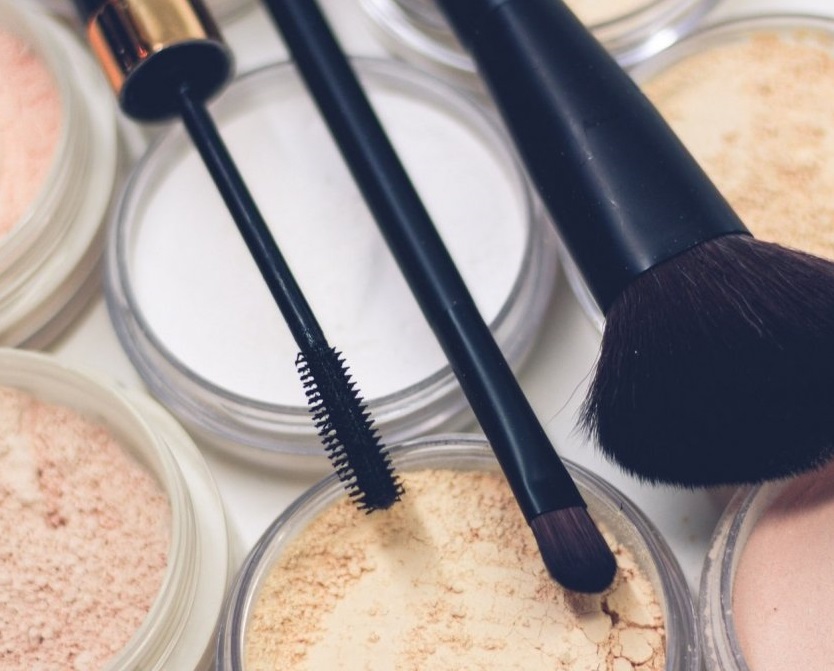The Basics of Healthy Makeup

Makeup can be a fun and creative way to enhance your natural beauty and boost your confidence. However, it is essential to keep in mind that makeup can also have negative effects on your skin and overall health if not applied and chosen properly. Therefore, it is important to follow the basics of healthy makeup to ensure that you look and feel your best while keeping your skin and body healthy.
Choose High-Quality Products
The first step to healthy makeup is to choose high-quality products that are free of harmful ingredients. Look for makeup that is labeled as “non-comedogenic,” which means it won't clog pores, or “hypoallergenic,” which means it is less likely to cause an allergic reaction. Avoid makeup that contains parabens, phthalates, and other harmful chemicals.
Always remove your makeup at the end of the day using gentle cleansers, makeup removers, or micellar water. Leaving makeup on overnight can clog pores and cause breakouts.
Use Sun Protection
Sun protection is essential for healthy skin, and it is equally important when it comes to makeup. Choose makeup products that contain SPF, especially for the face. Alternatively, apply sunscreen before applying makeup to ensure your skin is protected from harmful UV rays.
The implications of not protecting your skin from the sun are serious. Exposure to UV rays can cause premature aging, wrinkles, and skin damage that can lead to skin cancer. Wearing SPF-containing makeup is an easy way to protect your skin from the sun and its damaging effects.
Keep It Clean
Keeping your makeup brushes and tools clean is important for healthy makeup application. Wash your brushes regularly with gentle soap and warm water, and replace them every 3-6 months. The implications of using dirty makeup brushes are serious. They can cause irritation, breakouts, and infections on the skin, so it's important to clean them regularly and replace them regularly to ensure the best makeup application.
Practice Proper Application
Proper application is key to healthy makeup. Avoid applying makeup to areas with open wounds, cuts, or infections. Bacteria and other microorganisms can enter the body through open wounds, cuts, and infections, and these organisms can cause irritation, inflammation, and more serious health issues. Be gentle when applying makeup, especially around the delicate eye area. Use clean hands or tools to apply makeup, and avoid touching your face with your fingers throughout the day. Moreover, being gentle helps to reduce the risk of irritating the skin and causing further damage.
Take Breaks
Giving your skin a break from makeup can be beneficial for its health. Try to go makeup-free at least one day a week to allow your skin to breathe and rejuvenate. When wearing makeup, try to minimize the number of products you use to give your skin a break from heavy coverage.
Make-Up Ingredients to Avoid
Makeup is a great way to enhance our features, but not all makeup is created equal. Some makeup products contain unhealthy ingredients that can cause damage to our skin and overall health. In this article, we'll discuss some of the unhealthy makeup ingredients to avoid.
Parabens are a group of preservatives commonly found in cosmetics that can disrupt hormone function in the body. They have been linked to breast cancer and reproductive issues, making it essential to avoid them.
Synthetic fragrances are often used in cosmetics to mask unpleasant odors, but they can cause allergic reactions and skin irritation. They also contain phthalates, which are known endocrine disruptors.
Formaldehyde is a known carcinogen that is often used as a preservative in cosmetics. It can cause skin irritation and allergic reactions, making it an ingredient to avoid.
Toluene is a solvent commonly found in nail polish and hair dye. It is a neurotoxin that can cause headaches, dizziness, and respiratory issues.
Lead is a toxic heavy metal that can be found in some lipsticks and eyeliners. It can cause neurological damage, reproductive issues, and other health problems.
Coal tar is a byproduct of coal processing that is often used in dandruff shampoos, hair dyes, and other cosmetics. It is a known carcinogen that can cause skin irritation and allergic reactions.
Triclosan is an antibacterial agent commonly found in soaps, toothpaste, and other personal care products. It can disrupt hormone function and contribute to the development of antibiotic-resistant bacteria.
Aluminum is often found in antiperspirants and can be absorbed by the skin, leading to health issues like breast cancer, Alzheimer's disease, and other neurological disorders.
BHA (butylated hydroxyanisole) and BHT (butylated hydroxytoluene) are synthetic antioxidants commonly used in cosmetics to prevent the oxidation of oils and fats. They have been linked to cancer and other health problems.
Polyethylene Glycol (PEG) is a synthetic polymer often used as a thickener, emulsifier, and solvent in cosmetics. It can cause skin irritation, allergic reactions, and other health problems.
It is essential to read labels and avoid makeup products that contain unhealthy ingredients. Choosing makeup products that are made with natural and organic ingredients can be a great way to ensure that you are using safe and healthy products on your skin. Remember, our skin is our largest organ, and what we put on it can have a significant impact on our overall health and wellbeing.




Leave a Reply